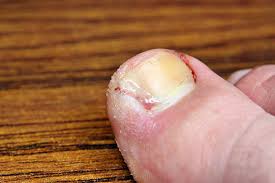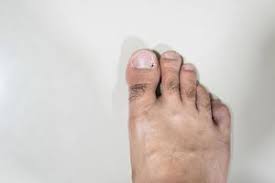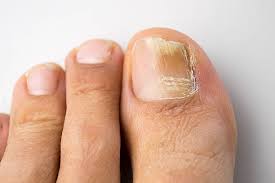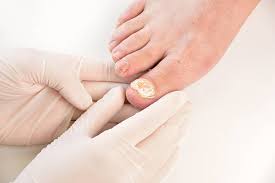Nail Treatment
Nail Psoriasis
Nail psoriasis is a chronic inflammatory condition that affects the fingernails or toenails, occurring in up to 50% of people with psoriasis—and sometimes even without visible skin involvement. It results from psoriatic inflammation at the nail matrix or nail bed, leading to a range of nail deformities that can affect appearance, function, and self-confidence.
Common symptoms include:
- Pitting: small, pinpoint dents in the nail surface
- Onycholysis: separation of the nail from the nail bed
- Discoloration: yellow-brown patches (“oil drop” or “salmon patch”)
- Thickening, ridging, or crumbling
- Subungual hyperkeratosis: buildup of debris beneath the nail
Nail psoriasis can cause pain, make tasks like writing or buttoning difficult, and increase the risk of secondary fungal infections.
Treatment options include:
- Topical therapies: corticosteroids, vitamin D analogs, or calcineurin inhibitors
- Intralesional corticosteroid injections for targeted control
- Systemic treatments: biologics or oral medications (if skin/joint psoriasis is present)
- Nail care guidance: trimming techniques, avoidance of trauma, and infection prevention
With early and consistent treatment, nail appearance and function can significantly improve, reducing discomfort and long-term damage.
📞 Schedule your nail psoriasis evaluation at MGClinic.com for expert care and lasting relief.


Ingrown Toenail (Onychocryptosis)
An ingrown toenail occurs when the corner or side of the nail grows into the surrounding skin, leading to pain, swelling, redness, and sometimes infection. It most commonly affects the big toe and can significantly impair walking or wearing shoes. If left untreated, it may progress to an abscess or chronic inflammation, especially in patients with diabetes or poor circulation.
Common causes include:
- Improper nail trimming (cutting nails too short or rounded)
- Tight or ill-fitting footwear
- Trauma to the toe (e.g., stubbing or repetitive pressure)
- Genetic nail shape (curved or thick nails)
- Recurrent fungal infections or excessive sweating
Treatment options include:
- Conservative care: soaking, topical antibiotics, and gentle lifting techniques for mild cases
- Partial Nail Avulsion: removal of the ingrown nail edge under local anesthesia
- Chemical Matrixectomy: cauterization of the nail root with phenol or sodium hydroxide to prevent regrowth
- Infection control: if pus or swelling is present, oral antibiotics may be prescribed
- Preventive counseling: trimming guidance, footwear advice, and long-term nail care
Treatment is quick, safe, and often provides instant relief from pain and discomfort.
📞 Book your ingrown toenail consultation at MGClinic.com and walk pain-free again with expert care.


Fungal Nail Infection (Onychomycosis)
Fungal nail infections are a common nail disorder caused by dermatophytes, yeasts, or molds invading the nail plate or nail bed. They often begin subtly but can progress to thickened, brittle, yellow, white, or brown nails that may become misshapen or lift from the nail bed (onycholysis). Onychomycosis can affect one or several nails—most often the toenails—and may cause pain, embarrassment, or difficulty walking in advanced cases.
Common risk factors include:
- Excessive moisture, occlusive footwear
- Trauma to the nails
- Diabetes
- Frequenting communal spaces like swimming pools or gyms
Treatment options include:
- Topical antifungal lacquers or creams: Best for mild or superficial infections
- Oral antifungal medications (e.g., terbinafine or itraconazole): Effective for deeper, more widespread infections
- Laser therapy (in select cases): A non-invasive adjunct to accelerate fungal clearance
- Nail debridement or thinning: Improves penetration of medications and relieves discomfort
- Hygiene education to prevent reinfection, including sock/shoe disinfection and nail care
Early diagnosis and consistent treatment are key, as nail fungus can be slow to clear and may recur without proper management.
📞 Book your nail evaluation at MGClinic.com and step into healthy, clearer nails with confidence.


 MG Clinic
MG Clinic